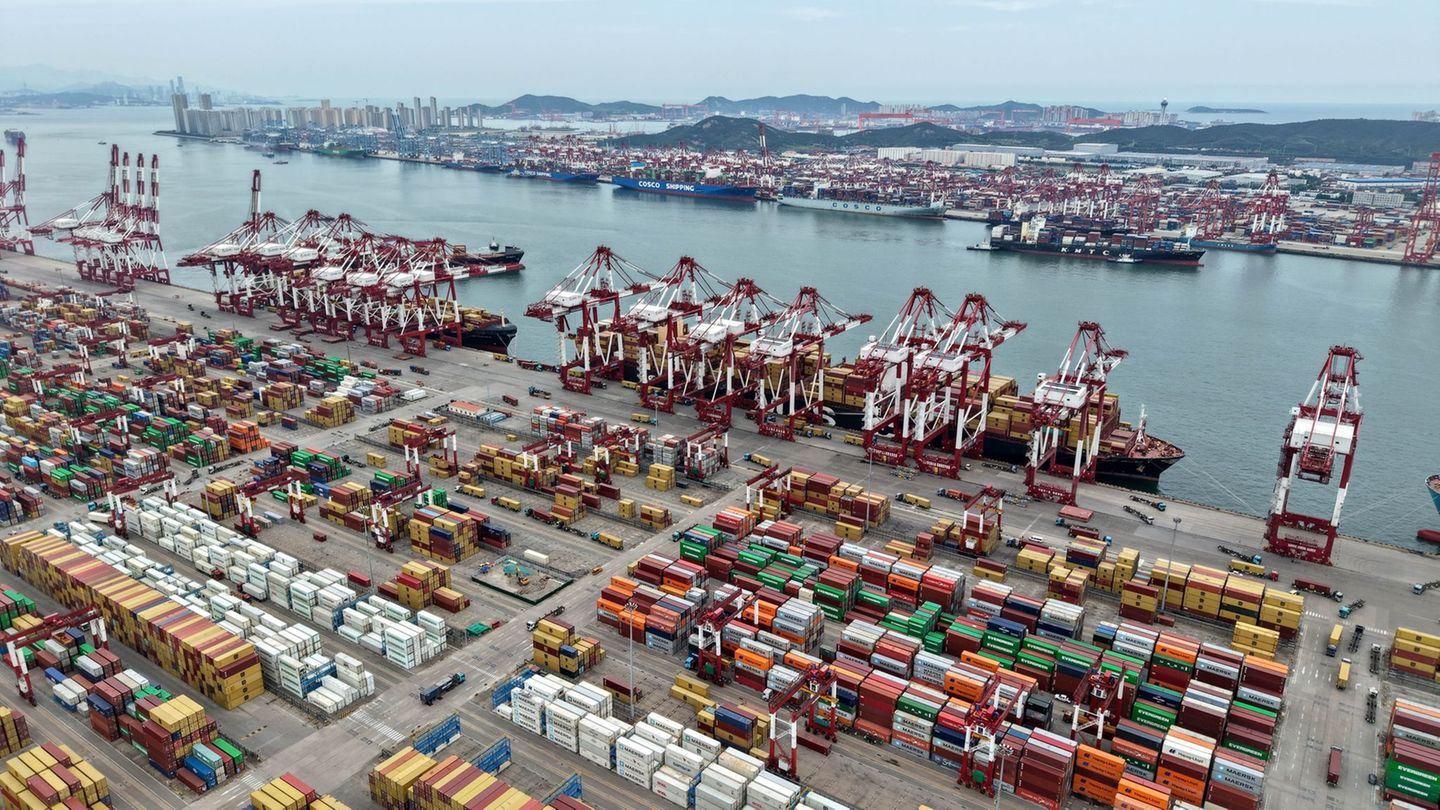Economics Minister Habeck has been working on his industrial strategy for a long time. Now there is a paper that not only promises funding and better location conditions.
Economics Minister Robert Habeck wants to boost German industry – and is relying on a lot of money from the state. The aim is to preserve the industry in all its diversity, from global corporations to small businesses, from mechanical engineering to space travel, the Green politician formulated in a strategy paper presented on Tuesday. Current financial policy rules such as the debt brake would have to be reconsidered. The surcharge has not been agreed upon with Finance Minister Christian Lindner (FDP), who may have a different opinion.
Habeck had already declared a year of industrial policy last autumn. So far, this has been particularly evident in billions in funding for chip factories. Now the Green politician is putting a strategic spin on the whole thing. The analysis: The German economy has a good structure, but currently poor conditions. “In my opinion, we are not doing enough yet,” said Habeck. The opposition Union sees it completely differently: “According to Mr. Habeck, the state sees itself as a well-meaning master of the economy,” criticized economic politician Julia Klöckner.
Large corporations and medium-sized businesses are equally important
However, the industry reacted predominantly positively. This may also have something to do with the fact that the Minister of Economic Affairs is taking up your concerns. For example, he contradicts demands that Germany should forego energy-intensive industries such as chemicals, steel and cement because the conditions for cheap green electricity are not ideal. He also emphasizes the importance of small and medium-sized businesses, which were neglected in previous industrial strategies. The Association of Family Businesses nevertheless criticized Habeck, saying that many of Habeck’s projects ignored their needs.
Not rosy times for the industrial location
The Minister of Economic Affairs shares the sometimes dramatic analysis of the situation in the industry. The geopolitical situation, the expensive but necessary transformation to a CO2-neutral industry as well as neglected infrastructure, a lack of digitalization and a lot of bureaucracy – all of this is putting the industry under enormous pressure. The industry association BDI has been warning for months about companies migrating abroad, primarily because of energy prices that are high compared to international standards and a lack of skilled workers.
50 billion in government funding in four years
For Habeck, industrial policy also means state funding. He summarizes that tax incentives for investments and relief for the economy amounting to 50 billion euros are planned over the next four years. But: One should not simply reduce taxes, but rather must specifically support projects to transform companies. The Green Economics Minister regularly argues about this with the liberal Finance Minister Lindner, for whom subsidies are not the method of choice.
Better location conditions
Habeck once again called for a significant expansion of renewable energies, cheaper electricity prices and less bureaucracy. A reduced industrial electricity price should help keep energy-intensive industries in Germany. Like Lindner, Chancellor Olaf Scholz (SPD) has so far made rather critical comments about this. On Tuesday he promised IG Metall a solution for energy-intensive industries. The federal government will ensure that no company has to close due to high energy prices.
More manpower
The labor gap threatens to become a growth problem for Germany by the end of the decade, warns Habeck. He therefore advocates targeted incentives: Anyone who stays in the job beyond retirement age can, for example, have their employer’s contribution to unemployment and pension insurance paid out directly. “Alternatively, a tax allowance for employees subject to social insurance contributions above the standard retirement age would be conceivable,” says the strategy. Also part of it: the plan to obtain toleration in the country for immigrant workers through work. These workers are important, said Habeck.
Habeck considers the debt brake to be outdated
If the proposals are implemented, they are likely to cost the state billions. Habeck therefore wants to put current financial policy rules to the test. He thinks they don’t suit the economy at the turn of the century. In his strategy, the Green politician suggests that the costs must be “covered in solidarity”. He also calls the debt brake into question, but immediately emphasizes: “The coalition agreement, including the debt brake, applies to this legislation.”
Trouble expected: How does coalition partner FDP react?
Some of Habeck’s theses could foreseeably cause new stress in the traffic light coalition. The minister admitted that there are points on which the actors do not yet agree. This also applies to financial possibilities. Of course, because the debt brake is one of the FDP’s central election promises. Lindner insists on adhering to them again in the next budgets.
However, the strategy is not directed against anyone, but is intended to highlight the conflicts again, said Habeck. The industry is doing badly, so “one should not only complain descriptively, but also make political decisions.” However, it remains unclear when the federal government will make a decision on its industrial strategy.
Source: Stern




